The concepts like AIO and GEO are quickly becoming popular in search.
As AI platforms like ChatGPT, Google AI overviews, and Perplexity are changing the way people find information online, AIO helps your content appear in AI answers.
In this post, we’ll discuss the meaning of AIO, how it works, its benefits, and the future of AIO in search engine optimization.
Table of Contents
What is AIO in SEO?
AIO refers to Artificial Intelligence Optimization, which is the process of optimizing your website’s content for both AI tools and search engines, such as generative AI and Google’s AI Overviews.
Unlike traditional search, where users have to go through multiple web pages to find information, AIO helps users find information right away in Google AI overviews or AI-generated summaries.
For example, if someone searches for “best travel destinations in Europe”, Google AI overviews provide a list of best places directly on the results page.
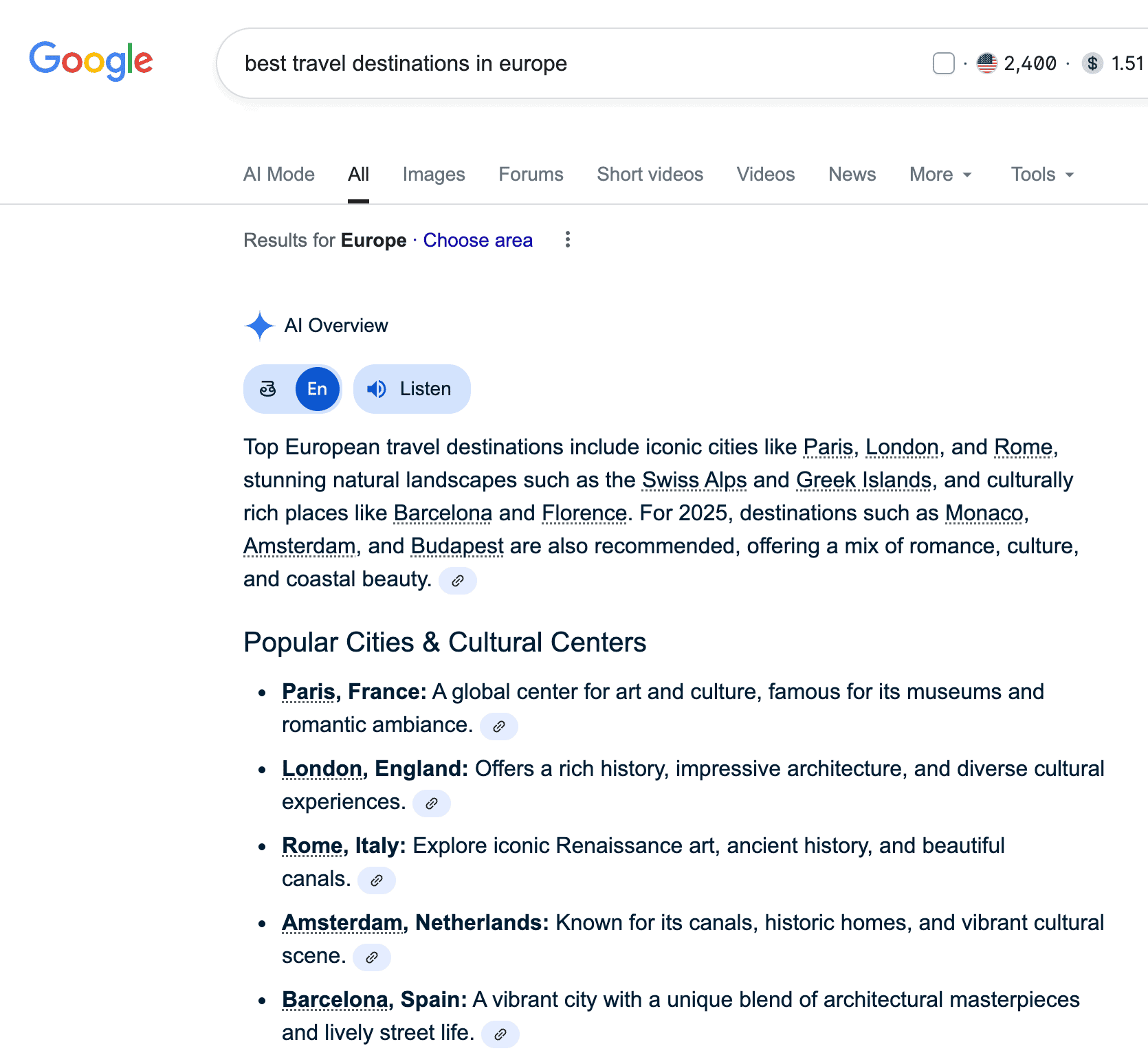
How AIO Works in SEO?
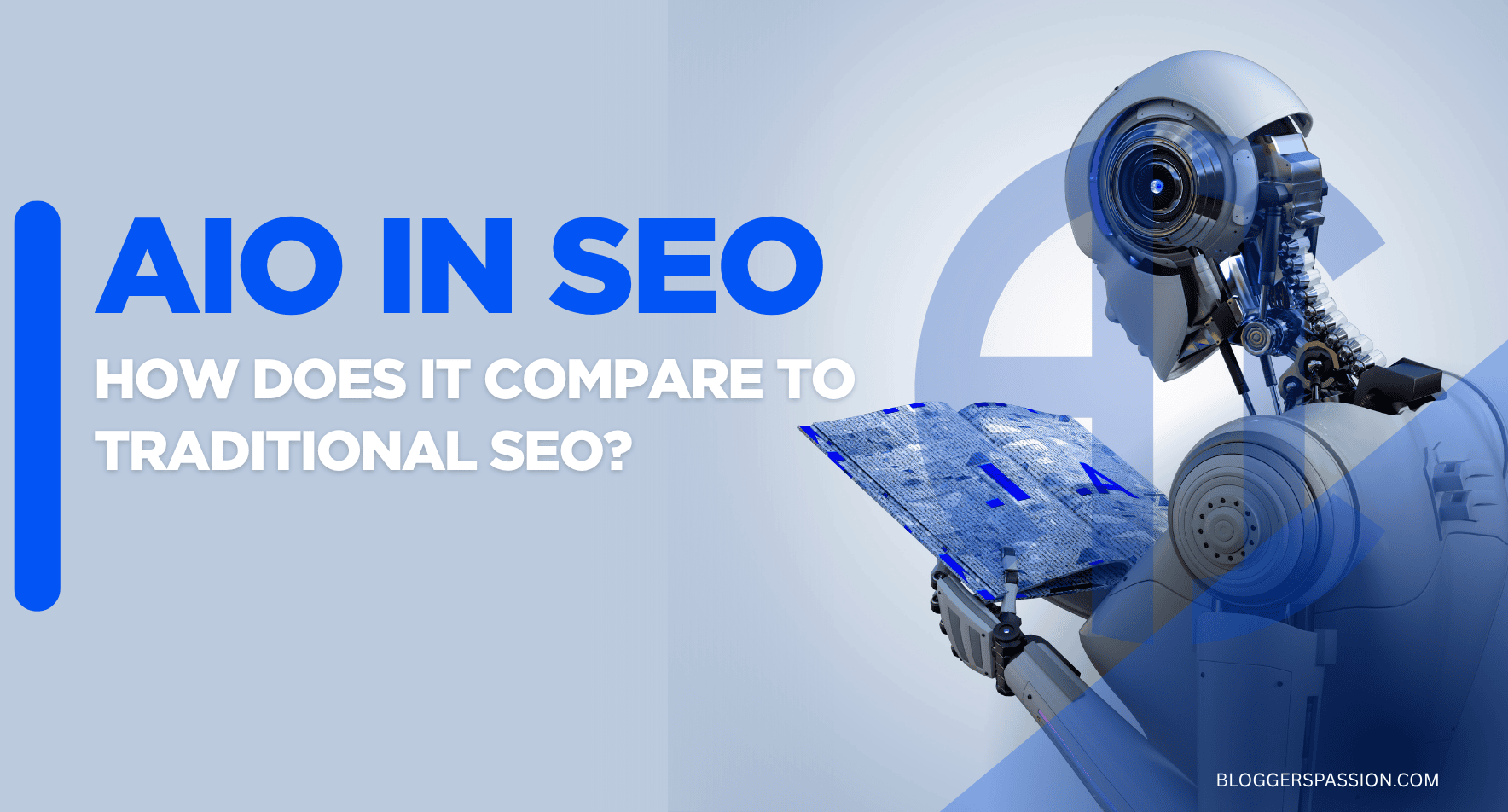
AIO uses NLP to understand user intent and provide conversational answers that match the users’ queries.
Here’s how AIO works in SEO;
- AIO basically uses NLP (Natural Language Processing) to understand the context and intent behind users’ questions.
- It analyzes top-ranking pages and extracts essential data, including key facts and statistics.
- AI then structures content in a way that conversationally provides answers, allowing AI tools to utilize that information in AI summaries.
- AIO is an ongoing process, as AI continually learns from user interactions and data to provide even better and more accurate answers to users’ queries.
Want to boost your website’s rankings? Here are the common types of SEO you should learn and master.
Benefits of AIO in SEO
AIO is changing the way people find information online. It helps you save time, get better answers, and learn any topic without having to scroll through hundreds of articles. Here are some of the significant benefits of AIO in SEO.
- AIO saves time by giving quick answers to users’ questions, ultimately helping with faster research.
- It helps explain complex topics in simple words so that even a beginner can grasp the context of any subject.
- It eliminates the need to browse multiple websites to get accurate information on any topic.
- Improves content visibility for SEO with AI-driven answers
Let’s further explore its benefits to understand how AIO is transforming SEO and content research.
Helps you prepare for future SEO
By 2028, AI search visitors are expected to surpass traditional search visitors. (Semrush)
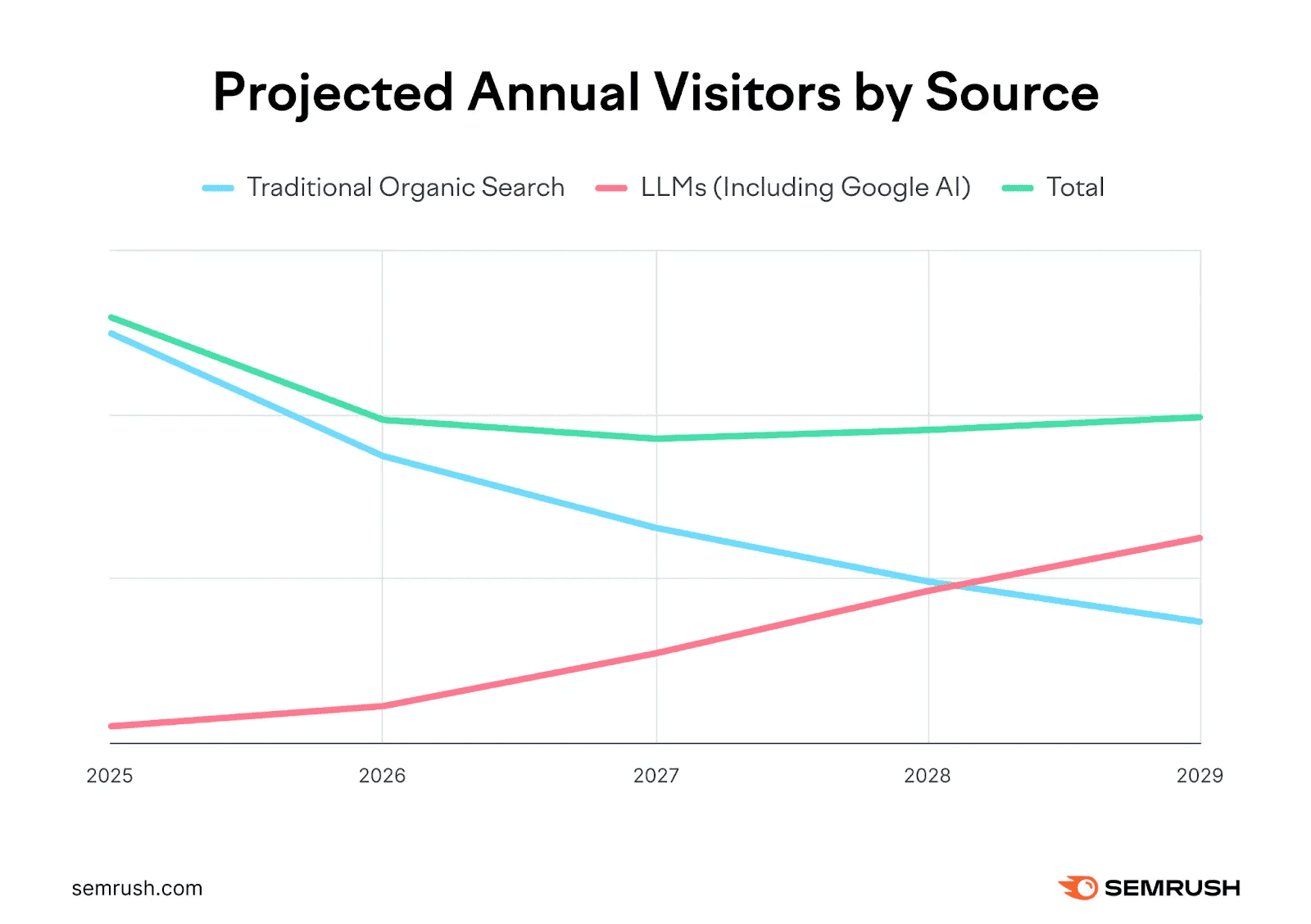
Google is also showing more AI overviews to its users for many queries.
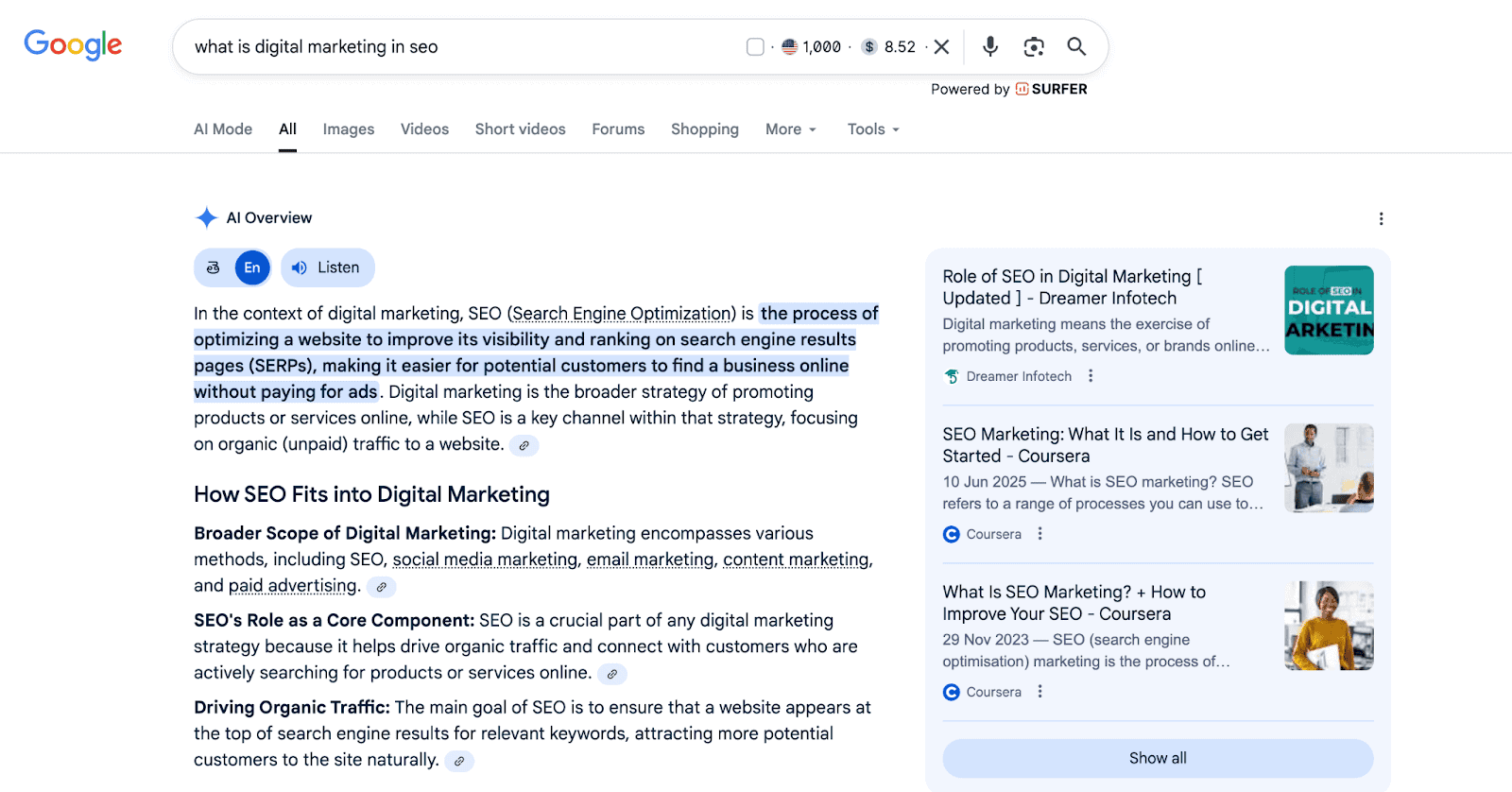
So, understanding AIO and implementing the right strategies can help you stay ahead as search engines shift toward AI-driven results.
Faster research
Whether you’re a college student, job seeker, or website owner, AIO helps you find relevant information on ANY topic faster.
For example, let’s say you want to find the best SEO tools. Instead of going through a ton of articles or videos on Google, AIO quickly scans the web, analyzes top sources, and gives you a list of the best tools on SEO.
It saves you a lot of time while researching and eliminates the need to scroll through a lot of information.
More AI visibility
If your website’s content is optimized correctly, it is more likely to be cited or featured in AI-generated answers. Not to mention that AIO helps your content get featured in position #0 results in most cases.
Some of the best ways to optimize your content for AI include;
- Using structured data
- Using descriptive headings
- Optimizing your content for question-based keywords
- Providing direct answers to users’ queries at the beginning of your content
- Optimizing your content for voice searches
Want to learn SEO? Here’s a beginner’s guide to what SEO is, along with its core concepts.
Challenges of AIO in SEO
Although AIO helps find answers quickly, it has its own limitations. Let’s discuss some of the significant challenges of AI optimization.
Fewer clicks to the actual website
When Google AI overviews or AI platforms provide summaries or answers directly, search users don’t click on the websites. So, the overall clicks coming from search engines will go down, ultimately leading to fewer click-through rates (CTR).
For example, for the query “best SEO tools for beginners,” Google’s AI Overview already lists tools like Google Search Console, Analytics, Ubersuggest, Yoast, and Rank Math, which leads to fewer clicks to actual websites like Zapier.
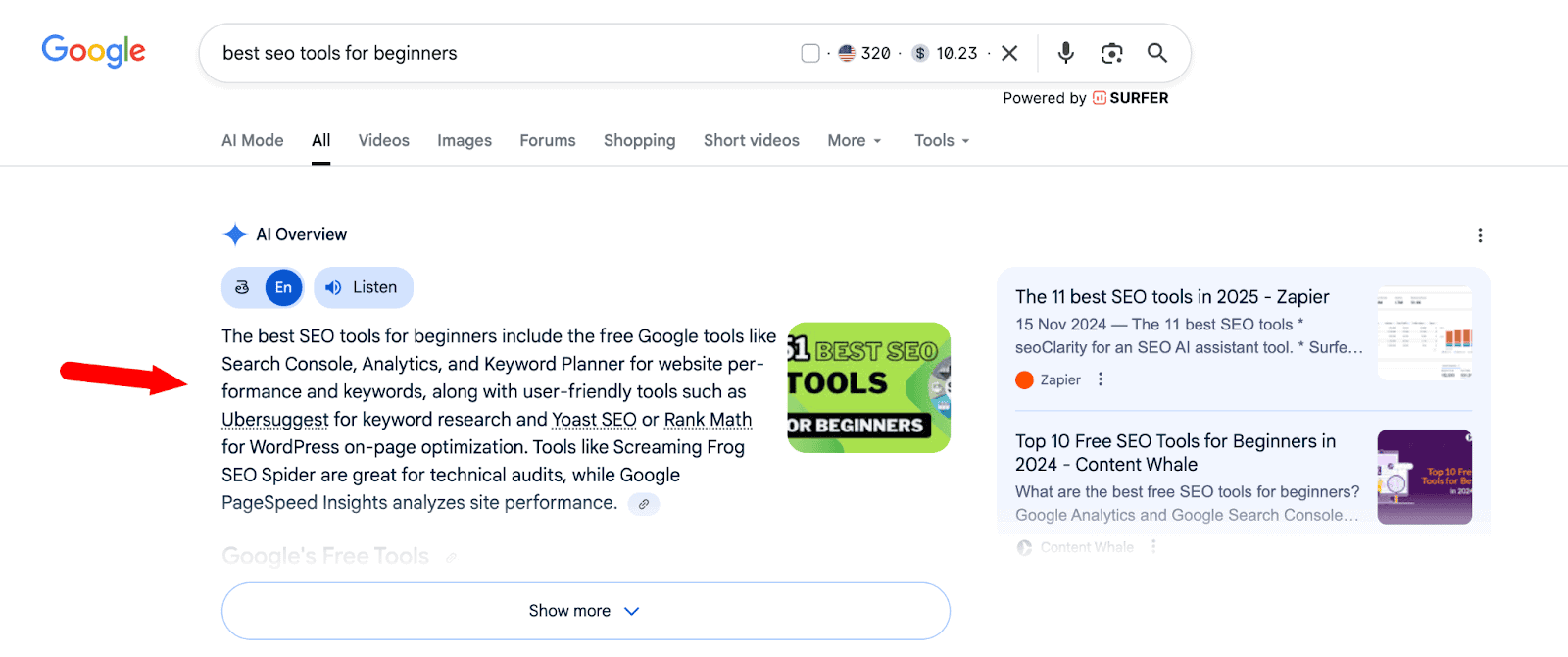
Accuracy of the content
You really can’t rely on AIO answers, especially when you’re looking for well-researched data.
AIO sometimes can skip reliable information and offer outdated answers.
For example, it can quote outdated SEO tactics like “keyword stuffing still works”, which can ultimately hurt your search rankings and overall reputation.
The decline of traditional ranking factors
In SEO, your rankings will depend on how well you can optimize your website for specific keywords. In SEO, traditional ranking factors like backlinks, on-page optimization, and detailed content work like a charm.
On the other hand, in AIO, your content’s visibility will depend on your ability to be found across search engines and AI platforms. So, the traditional keyword-based rankings are becoming less effective.
For example, a well-written article that naturally answers a question may outrank one stuffed with similar keywords. So, you need to adapt to the latest changes by focusing more on providing quality over quantity.
Better AIO needs EEAT signals
If you want to get cited in Google AI overviews and other AI platforms, you need to optimize content for EEAT signals.
EEAT stands for Experience, Expertise, Authority, and Trust. You need to show that the blog author has some credibility and experience in the topic.
Here’s an example showcasing expert author credentials to boost EEAT.
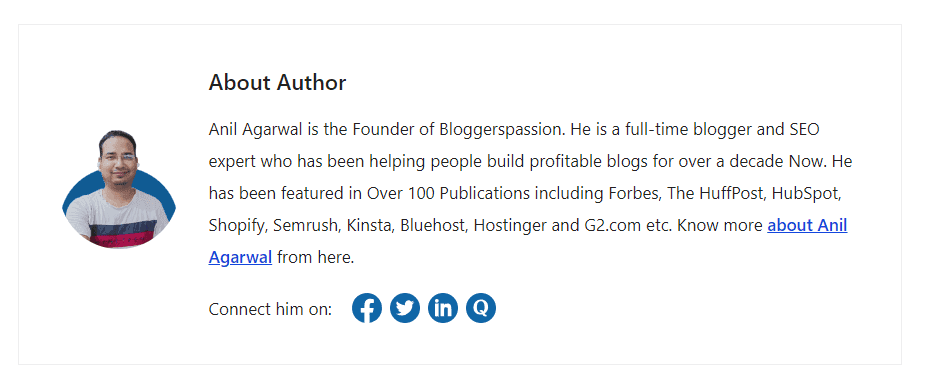
Maintaining EEAT signals for your website’s content is quite challenging for the following reasons;
- You need to update information regularly
- You must back your data or answers with proper sources
- You need authoritative writing or experts to publish your content
Above all, terms like AIO and GEO are still new, and AI models are constantly updated, which makes it even harder to predict rankings.
Here are some of the latest SEO trends you should watch for to stay ahead of the curve.
Future of AIO in SEO
According to Backlinko’s research, referrals from LLMs have grown by 800% year-over-year in just the past three months.
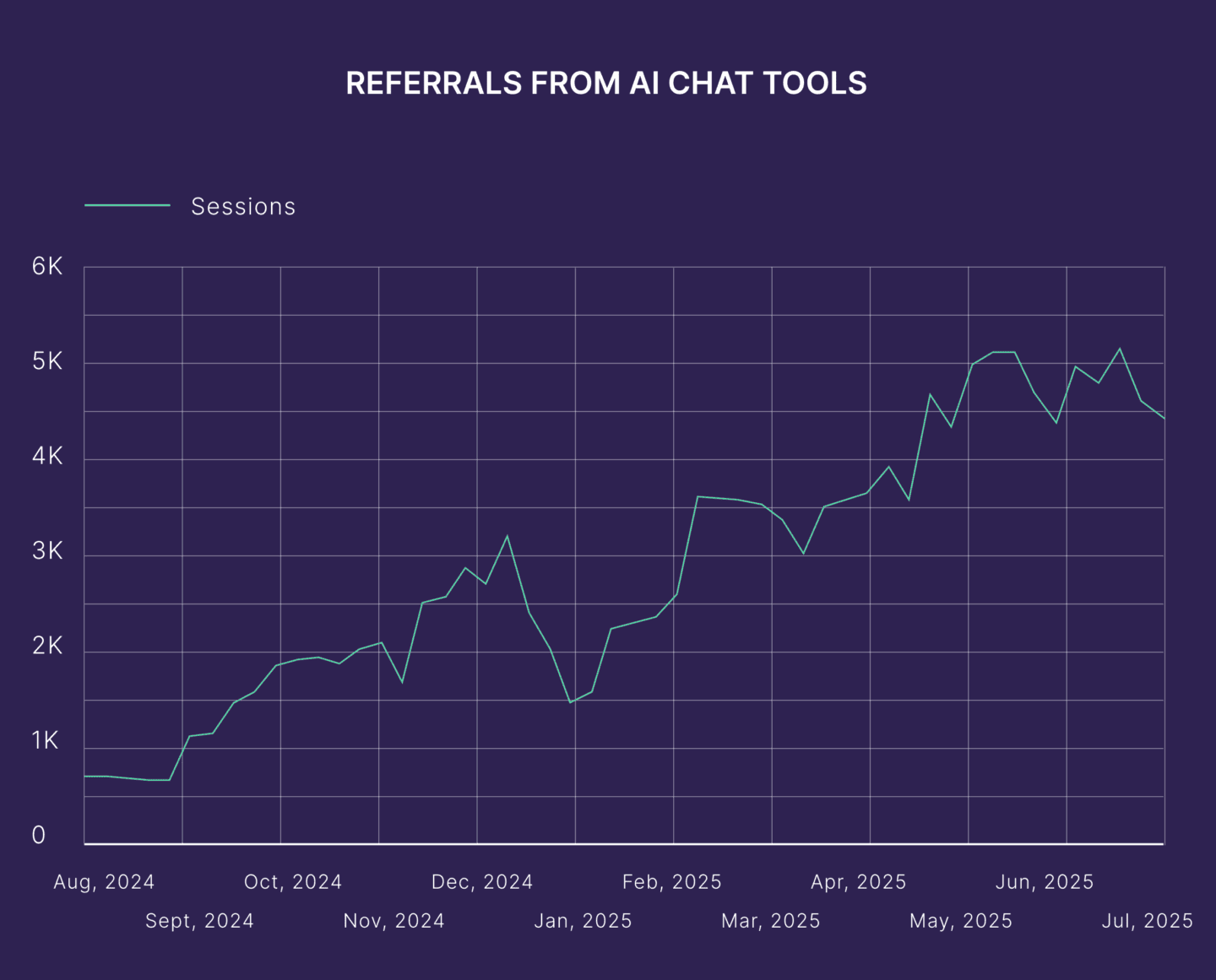
Google prefer to provide direct answers to users’ queries, so they don’t have to go through a ton of web pages to find information.
In fact, Google’s AI Overviews now appear in billions of searches each month, accounting for ~13% of all search results pages.
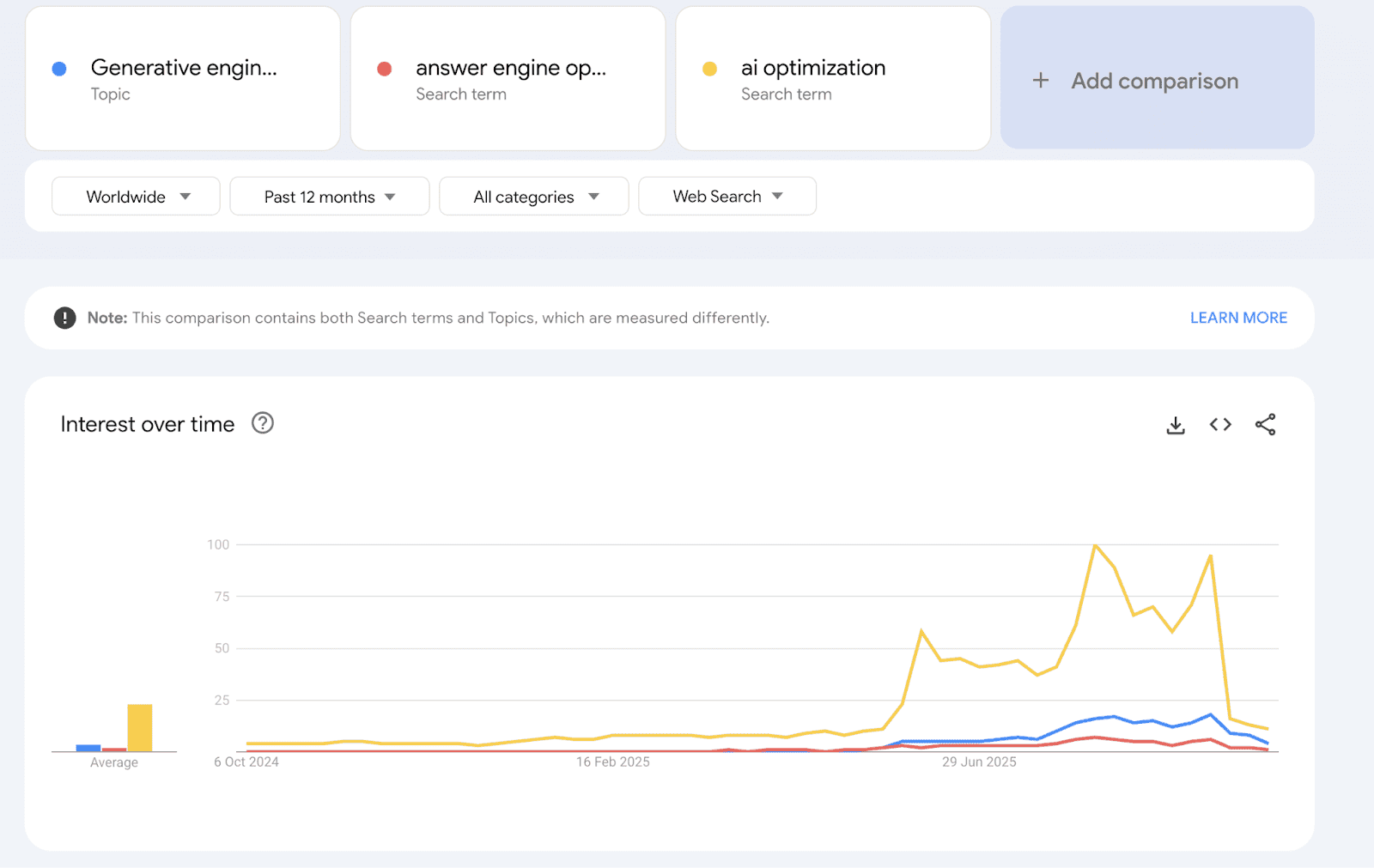
So if your brand or website is NOT adapting to the latest changes in AI optimization, you won’t be visible online.
Terms like AIO, GEO (Generative Engine Optimization), and AEO (Answer Engine Optimization) all mean essentially the same thing. The primary goal is to get cited in AI-generated answers.
The search trends for these different terms have also increased in the last year.
Here’s the data from Google Trends for these terms.
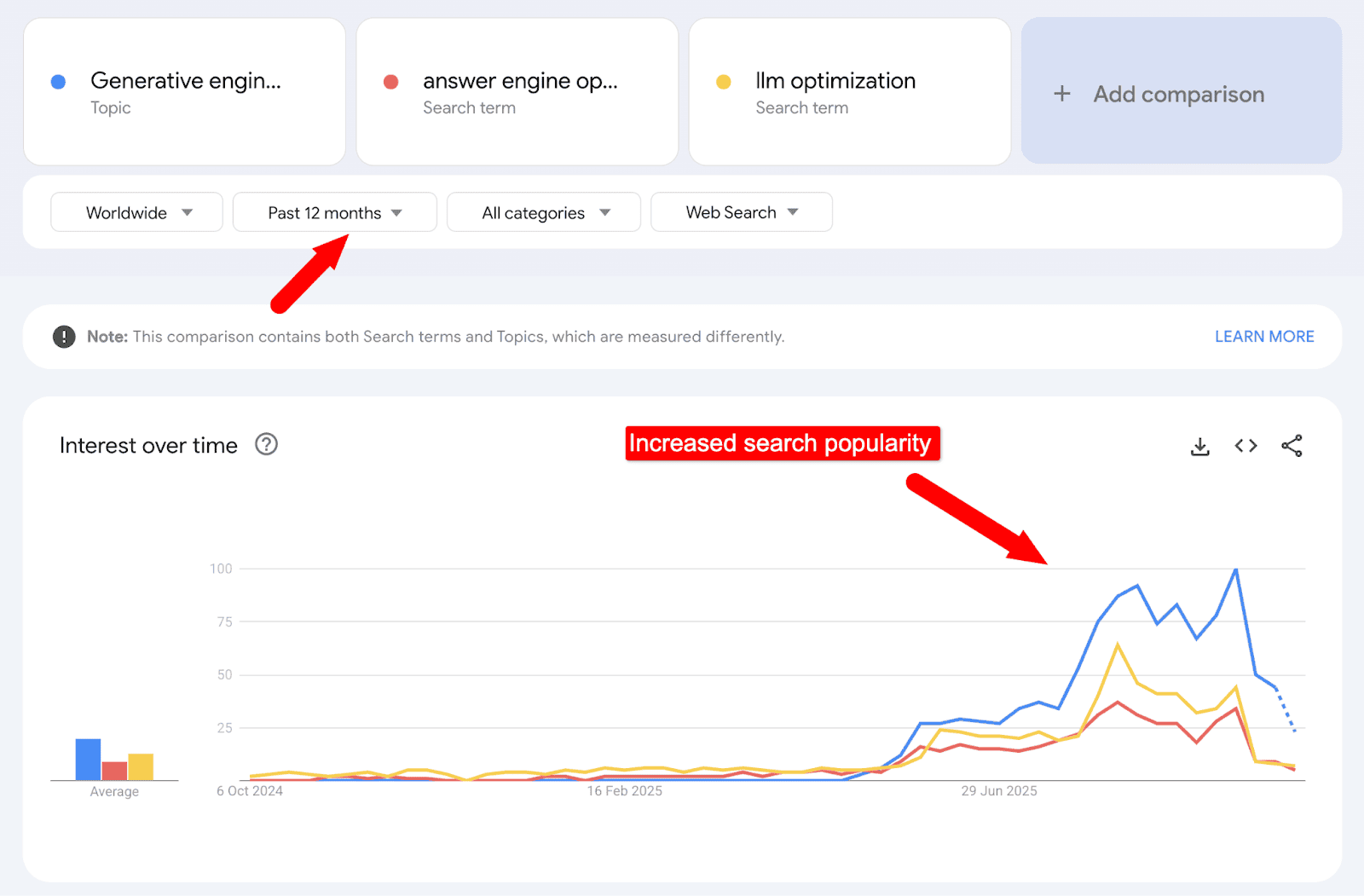
In fact, for the topic on “AI optimization,” the search popularity has skyrocketed in the last year.
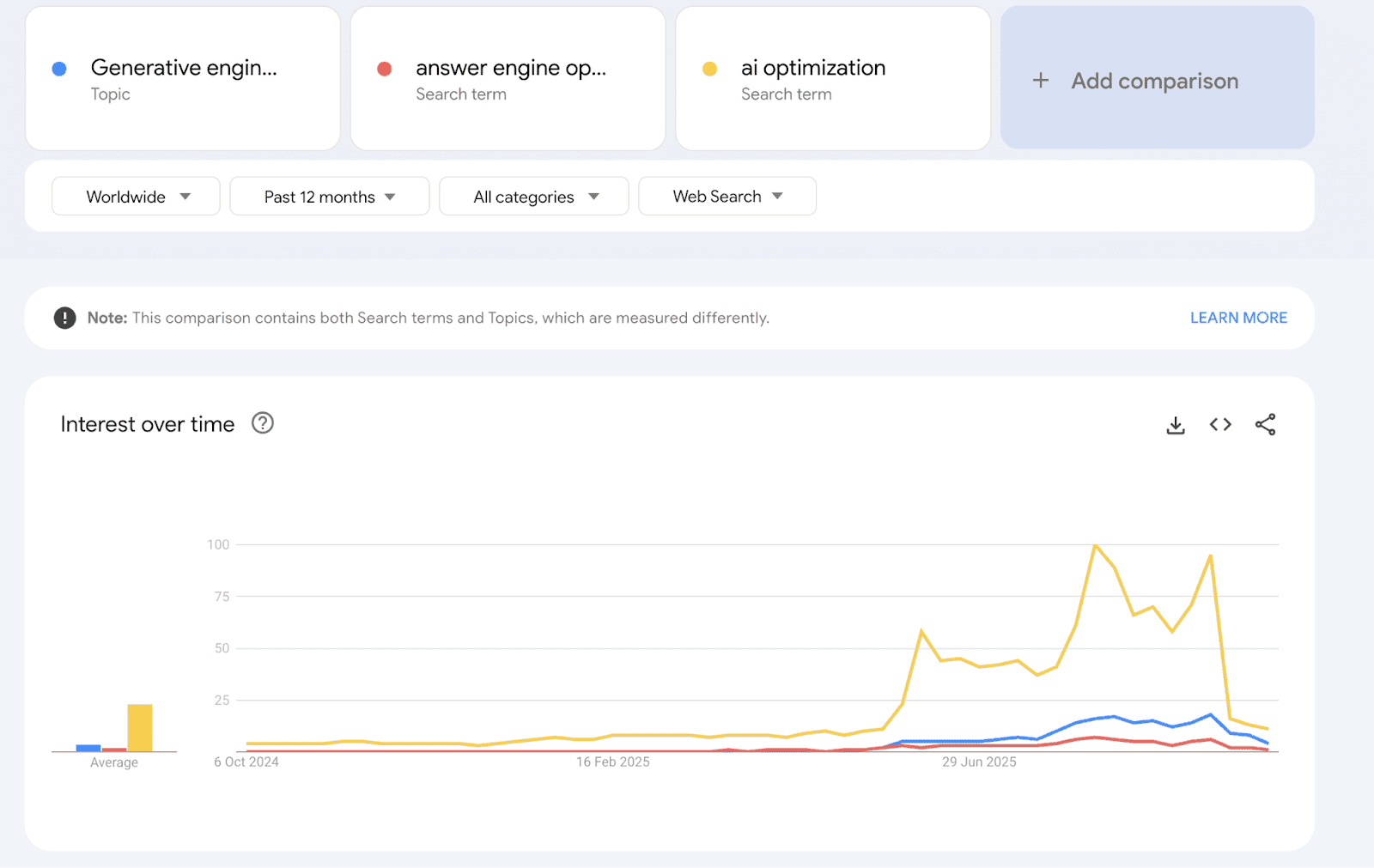
So, is SEO dead?
No.
In fact, the search interest in SEO remains strong, far higher than AI optimization.
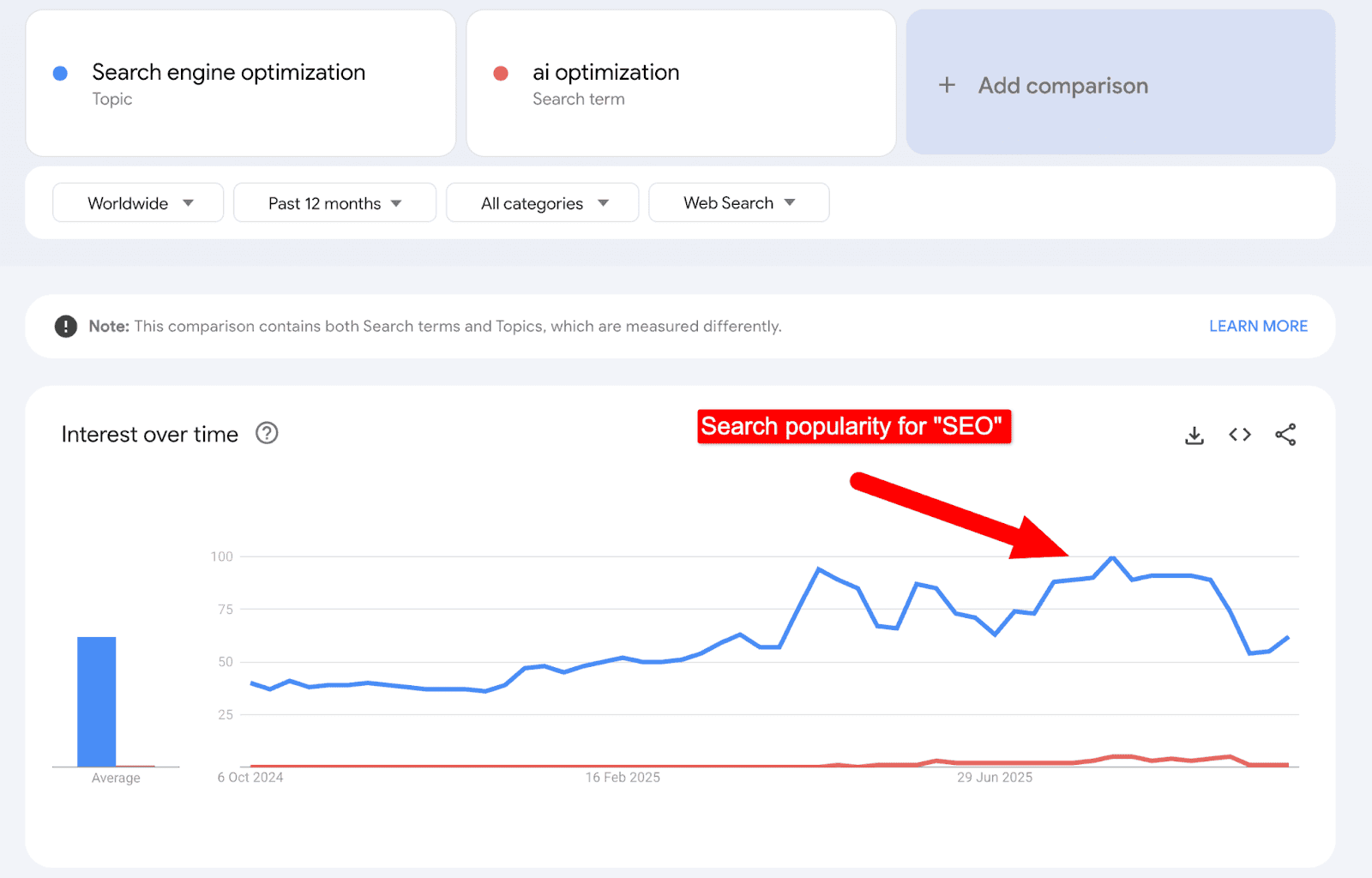
Yes, AI is changing the way people find information online, but SEO is still in high demand for increasing traffic, visibility, and leads.
The bottom line? As AI-driven results grow, optimizing your content for AI will become just as important as ranking on Google.
Conclusion
AIO in SEO is quickly becoming the next big thing, as people are preferring direct summaries.
The best way to prepare your website for AIO is to provide direct answers to your target audience in the first few sentences.
Focus on clarity and context with every post. Use descriptive headings, maintain a clear structure, add helpful insights, and include trustworthy sources to optimize your content for AIO effectively.
So, what are your thoughts on AI optimization in SEO? Are you going to optimize your content for AI? Have any questions? Let us know in the comments.
FAQs On AI Optimization
Here are some frequently asked questions about artificial intelligence optimization.
Yes, AI content can rank on Google if the content is helpful. Search engines penalize low-quality content that doesn’t offer any value to the users, not AI-generated content.
ChatGPT, Semrush’s AI toolkit, and Surfer are among the top AI tools for SEO.
No, AI can only extract data from existing online information, and it can’t replace the skills and expertise provided by SEO professionals.
You can start by optimizing your content to provide direct answers to users’ queries so that AI tools can pick up on your answers.
SEO, AEO, GEO, and AIO aren’t the same, but they all revolve around one core goal: optimizing your content for AI-driven search results. Each focuses on helping your content get discovered and understood accurately by AI systems.
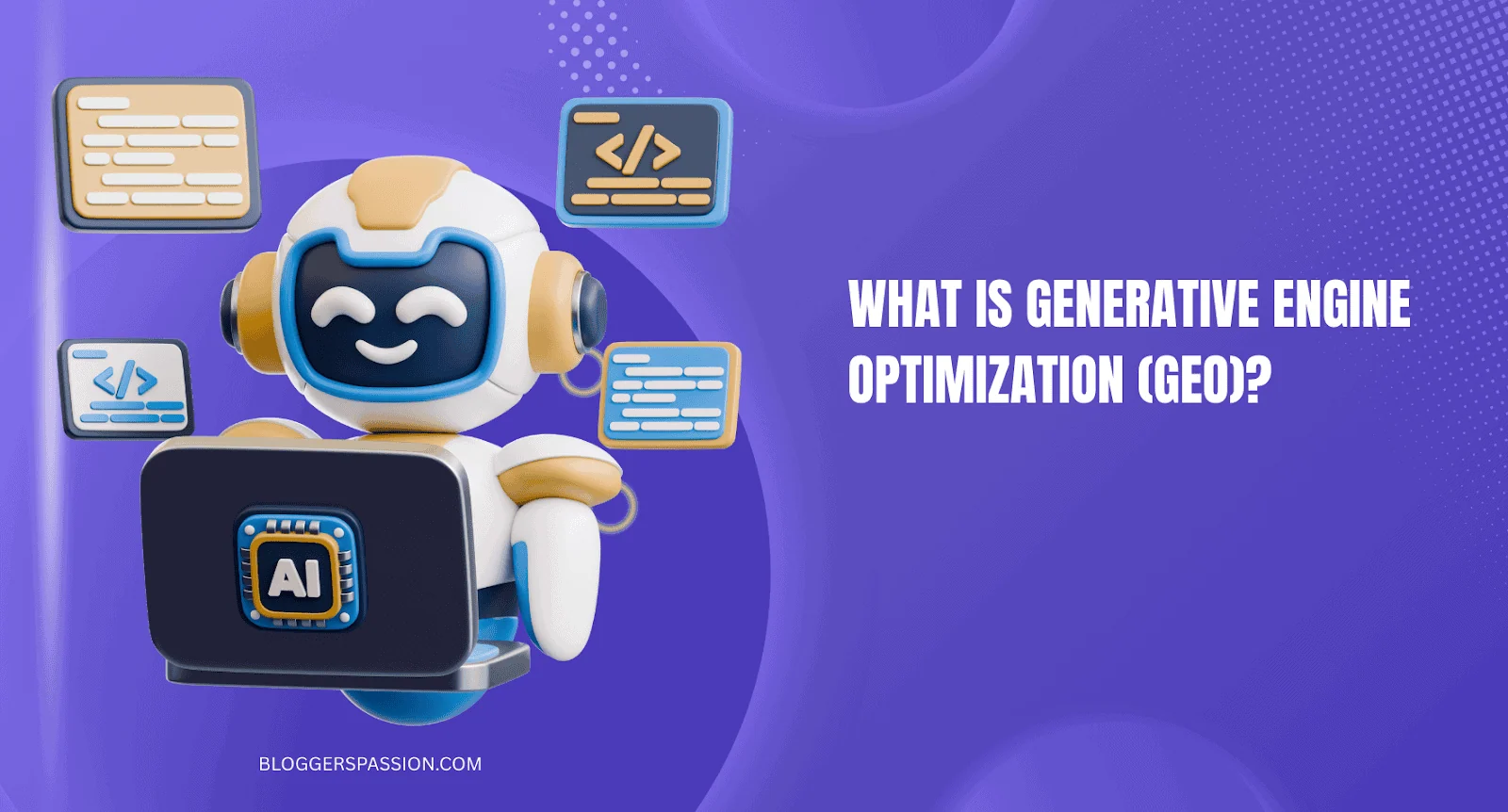
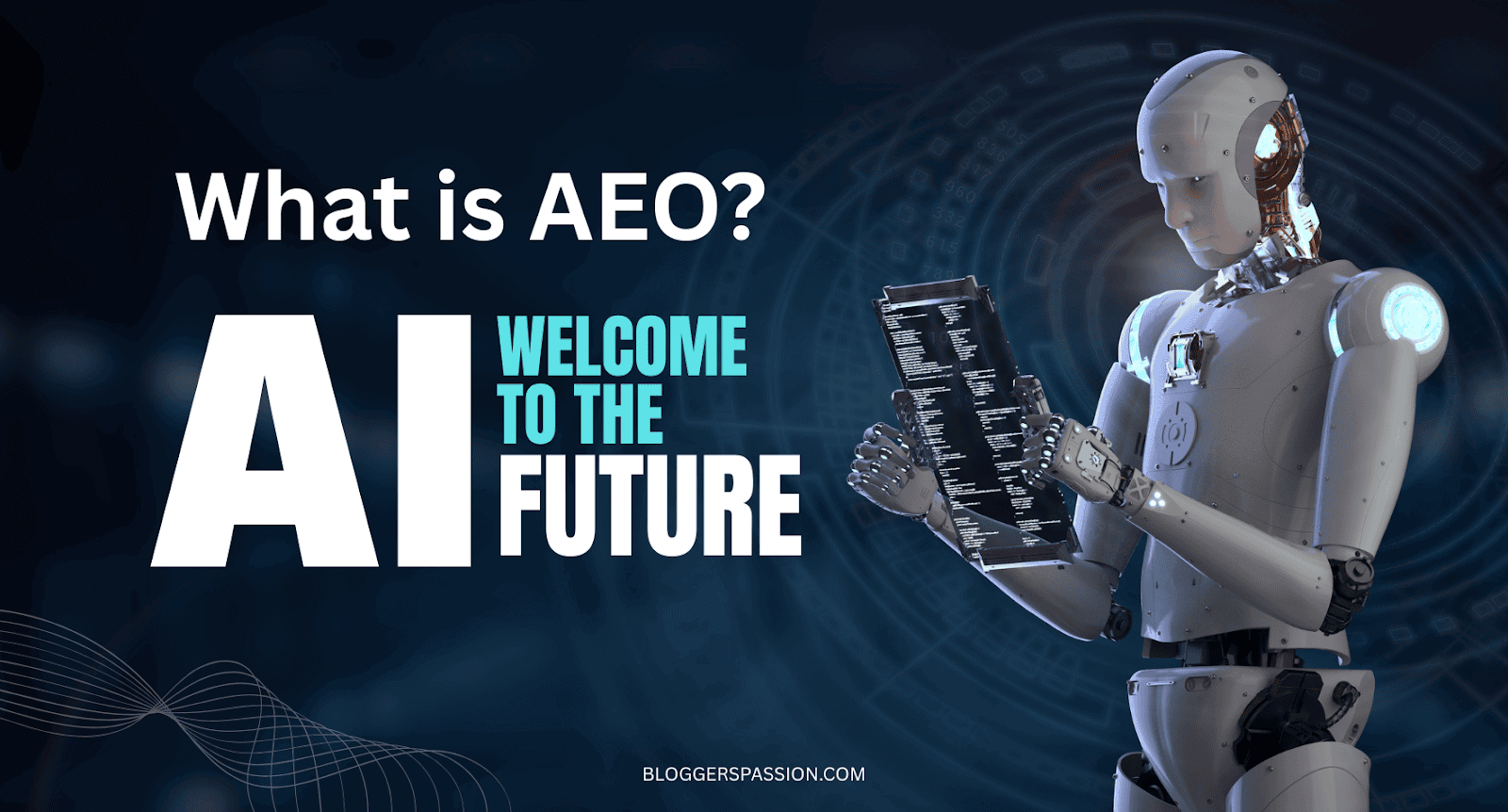

![11 Best AI SEO Tools To Use In 2026 [Free & Paid Top Picks]](https://bloggerspassion.com/wp-content/uploads/2025/09/ai-seo-tools.webp)